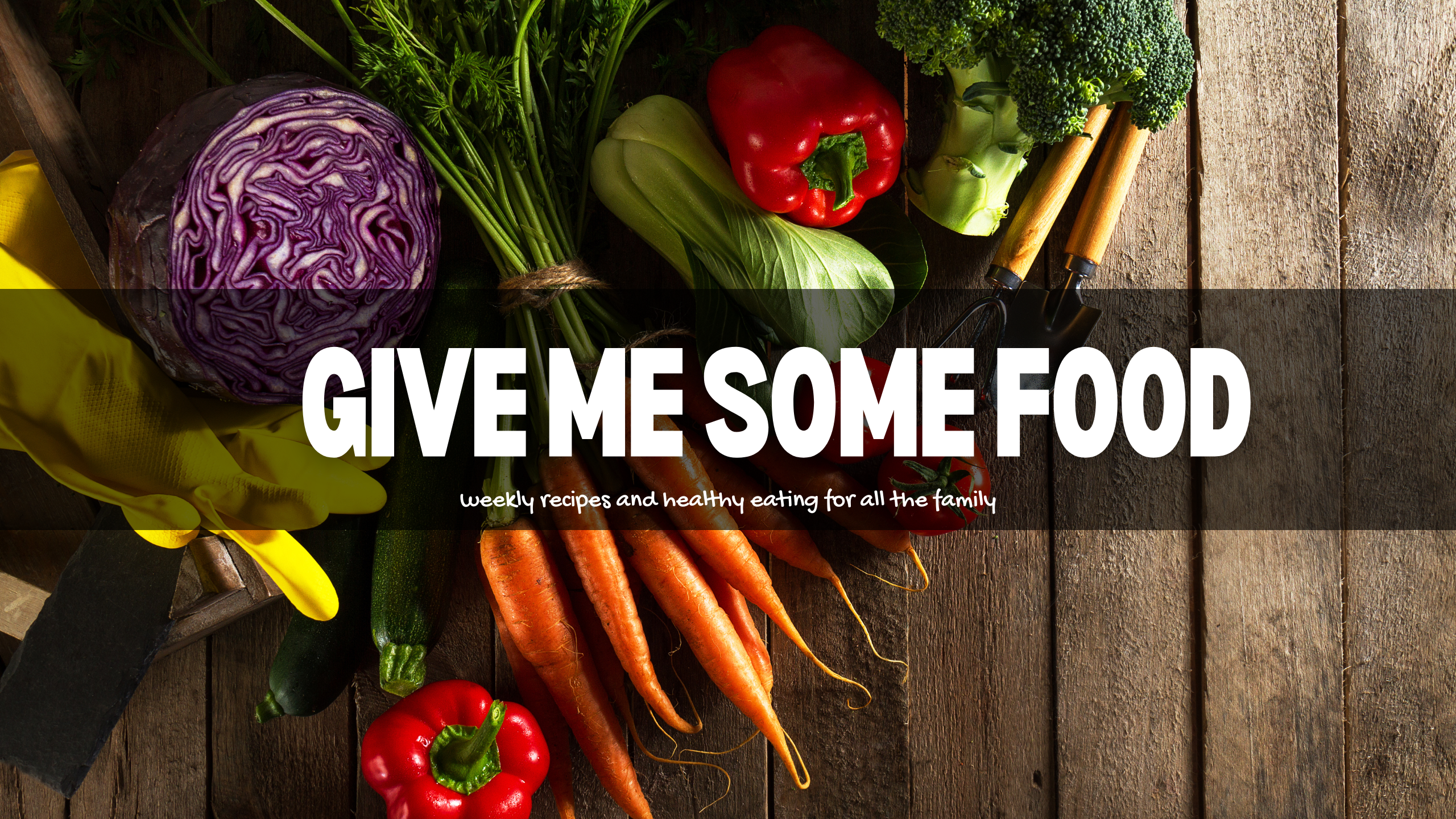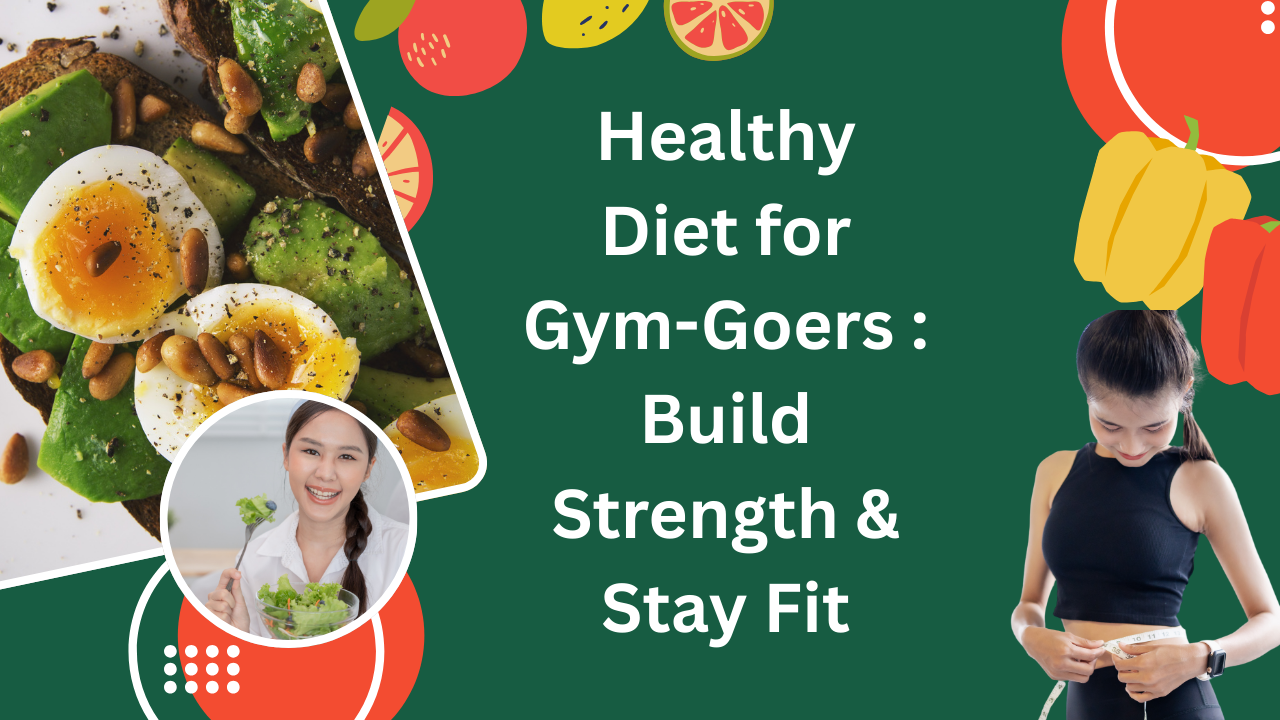No matter your fitness level—whether you’re a beginner or a seasoned athlete—your diet plays a vital role in your progress. Many people focus heavily on workouts, spending hours lifting weights, running, or doing intense cardio sessions. While exercise is essential, it’s only one part of the equation.
What you eat directly affects how your body performs, recovers, and transforms. Without proper nutrition, your efforts at the gym won’t give you the results you want. Poor eating habits can slow down muscle growth, limit fat loss, and leave you feeling tired and unmotivated.
The popular saying “abs are made in the kitchen” holds true for everyone. Whether your goal is to build muscle, lose fat, or simply feel stronger and healthier, your diet must support your training. A balanced, nutrient-rich eating plan is the key to turning hard work into visible, lasting progress.
This comprehensive 2800-word guide will take you through the best dietary practices for gym-goers, including what to eat, when to eat, and why it matters. We’ll cover the essential food groups, meal timing, supplementation, hydration, and provide a sample meal plan to kick-start your fitness-fueled nutrition plan.
Why Diet Matters in Fitness
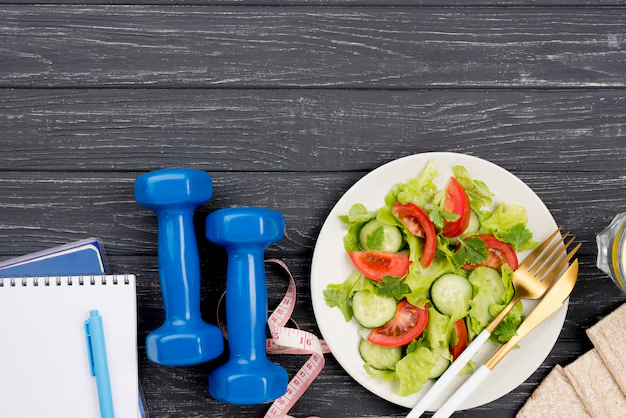
Many people underestimate how much diet influences performance and recovery. Nutrition provides the energy your body needs to exercise and the raw materials to build muscle and repair tissues.
Whether your goal is fat loss, muscle gain, or overall health, a clean, balanced diet does the following:
Boosts endurance and strength
Enhances muscle repair and growth
Improves fat metabolism
Supports immune function
Reduces the risk of injury and illness
Helps achieve faster results
Working out without supporting your body with the right nutrients is like trying to build a house without bricks.
Macronutrients: The Building Blocks
A healthy gym-goer’s diet revolves around macronutrients—protein, carbohydrates, and fats.
Protein: The Muscle Builder
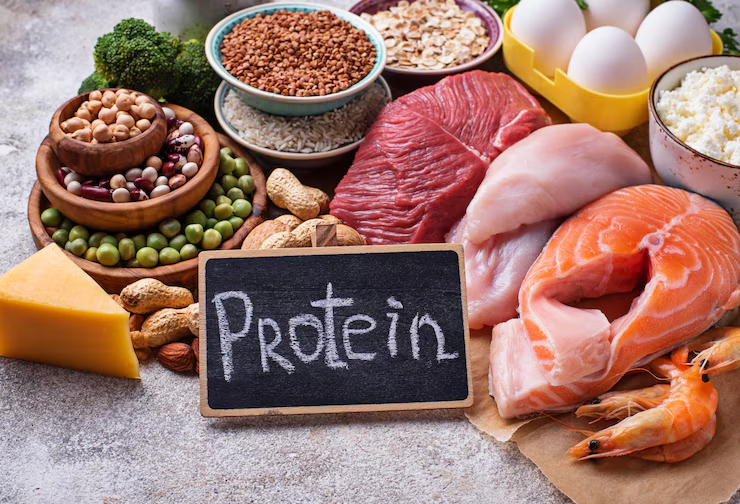
Protein is a key part of any healthy diet for gym-goers. It plays a major role in helping the body repair and grow muscles. After intense workouts, your body needs the right fuel to recover, and protein provides exactly that.
When you exercise—whether lifting weights or doing cardio—tiny tears form in your muscle fibers. This is a normal part of the training process. But for those muscles to rebuild and become stronger, your body needs enough protein.
Including good sources of protein in your meals is essential. Whether it’s lean meat, eggs, dairy, or plant-based options, protein supports muscle recovery and helps you bounce back faster after each workout. For anyone following a healthy diet for gym-goers, making protein a priority can lead to better strength, faster results, and improved overall fitness.
Recommended intake: 1.6 to 2.2 grams per kg of body weight per day (or 0.7 to 1.0 g/lb).
Best sources:
Chicken breast
Turkey
Eggs
Fish (salmon, tuna)
Lean beef
Greek yogurt
Tofu and tempeh
Whey and plant-based protein powders
Carbohydrates: The Energy Source
Carbohydrates are the body’s main source of energy, especially important for those who follow a healthy diet for gym-goers. They provide the fuel needed to power through workouts, whether it’s weight training, cardio, or high-intensity sessions.
During exercise, your body uses stored carbs, known as glycogen, to keep you energized. As you train, these stores get used up. That’s why it’s important to eat carbs before and after workouts—to keep energy levels steady and help muscles recover properly.
Adding the right amount of complex carbs, like whole grains, fruits, and vegetables, into a healthy diet for gym-goers ensures better performance and endurance. Skipping carbs can lead to fatigue, poor recovery, and slower progress. When balanced with protein and healthy fats, carbs help build a strong foundation for lasting fitness results.
Recommended intake: 3–6 grams per kg of body weight (varies based on activity level).
Best sources:
Brown rice, quinoa
Sweet potatoes
Oats
Fruits (bananas, berries)
Vegetables (broccoli, spinach)
Whole grain bread and pasta
Legumes (beans, lentils)
Fats: The Hormone Supporter
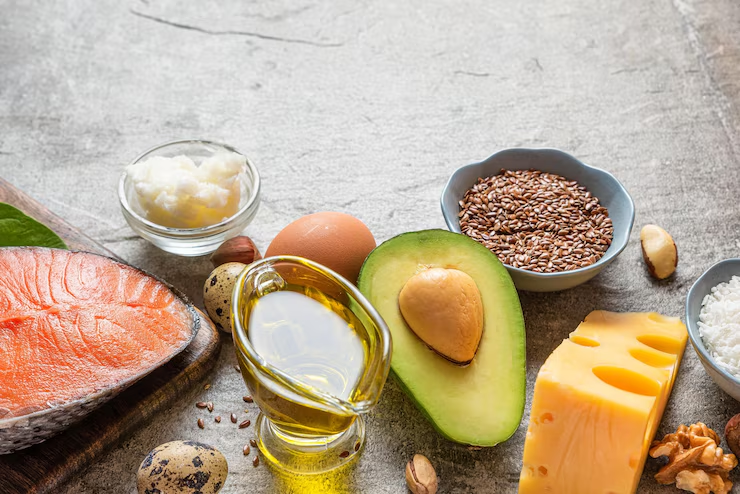
Fats are an important part of a healthy diet for gym-goers, even though they’re often misunderstood. They help regulate key hormones in the body, which play a role in muscle growth, recovery, and overall health. Without enough healthy fats, your body may struggle to function at its best.
Fats also support cell health and act as a secondary source of energy, especially during longer workouts or when carbohydrate levels are low. They help keep you feeling full and focused, which can improve both your training and recovery process.
In a healthy diet for gym-goers, fats are essential for absorbing fat-soluble vitamins like A, D, E, and K. They also help protect joint health and reduce inflammation. Choosing healthy fats from sources like nuts, seeds, avocados, and olive oil can give your body the support it needs for lasting strength and fitness.
Recommended intake: 0.8–1 gram per kg of body weight.
Best sources:
Avocados
Olive oil
Nuts and seeds
Fatty fish (sardines, mackerel)
Flaxseeds and chia seeds
Nut butters
Micronutrients: The Hidden Heroes
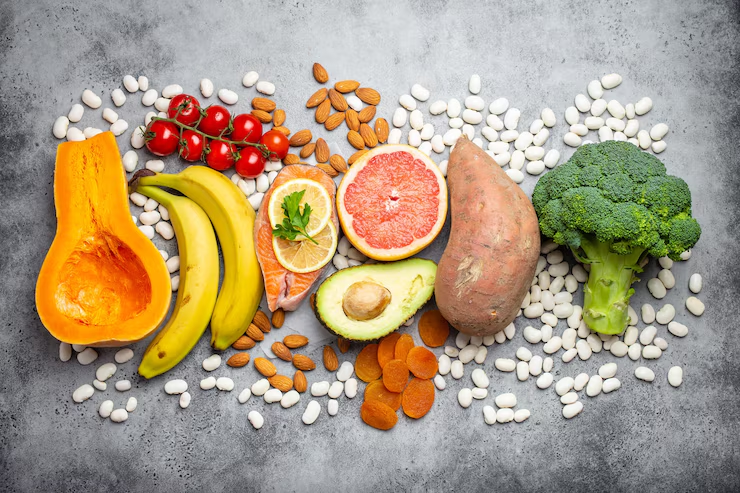
Micronutrients, including vitamins and minerals, are a vital part of a healthy diet for gym-goers, even if they don’t always get the same attention as protein or carbs. These small nutrients play big roles in how your body functions daily.
They support metabolism, helping your body convert food into usable energy. This is especially important when you’re active and need steady fuel for training and recovery. Without enough micronutrients, energy levels can drop, and progress may slow.
A healthy diet for gym-goers should include a variety of fruits, vegetables, nuts, and whole grains to provide essential vitamins and minerals. These nutrients also promote bone strength, speed up recovery, and keep your immune system strong—making them crucial for anyone serious about fitness.
Key Micronutrients for Gym-Goers:
Magnesium supports muscle function and better sleep. It can be found in leafy greens, almonds, and dark chocolate.
Vitamin D helps with bone health and immune support. Sunlight exposure, egg yolks, and fortified milk are good sources.
Iron is essential for oxygen transport in the body. You can get it from red meat, spinach, and lentils.
Calcium aids in muscle contraction and bone strength. Dairy products, kale, and fortified plant milks are great choices.
B Vitamins are important for energy production and can be found in whole grains, eggs, and legumes.
Zinc helps with recovery and boosts immunity. Look for it in pumpkin seeds, meat, and shellfish.
Including these nutrients helps support a balanced healthy diet for gym-goers and improves overall performance.
Meal Timing and Frequency
Contrary to some myths, you don’t need to eat every two hours. What matters most is consistency and total daily intake. That said, strategic meal timing can improve performance and recovery.
| Meal Type | Goal | When to Eat | What to Eat | Example |
|---|---|---|---|---|
| Pre-Workout Meal | Fuel your workout with energy | 60–90 minutes before exercise | Moderate carbs + lean protein + little fat | Chicken & sweet potato or oatmeal with protein powder |
| Post-Workout Meal | Rebuild muscle, replenish glycogen | Within 30–60 minutes post-exercise | Fast-digesting carbs + high-quality protein | Whey protein shake + banana or rice & grilled chicken |
| Daily Meals | Support muscle synthesis and energy | 3–5 balanced meals spaced daily | Include protein in every meal + mix of carbs and healthy fats | Eggs & toast, rice & veggies with tofu, Greek yogurt with nuts |
Top Diet Plans for Gym-Goers
Different gym-goers have different goals. Here are the best dietary strategies based on fitness objectives:
Diet for Muscle Gain (Bulking)
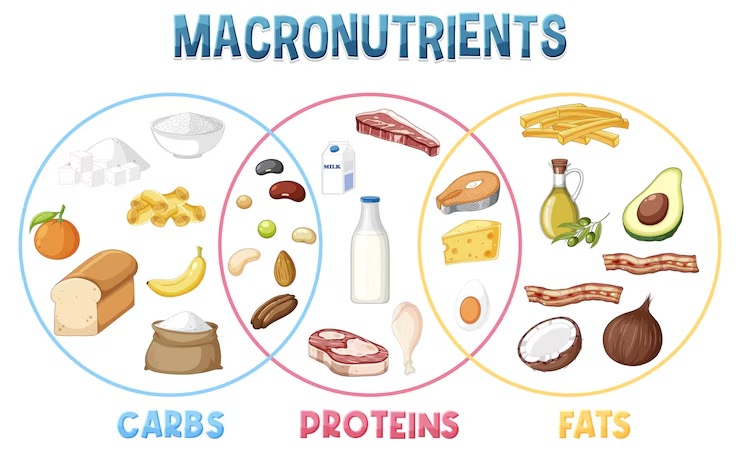
To build muscle, you need to eat in a calorie surplus—consuming more calories than you burn.
Calorie Target: 250–500 extra kcal/day
Macros:
Protein: 1.6–2.2 g/kg
Carbs: 4–6 g/kg
Fats: 0.8–1 g/kg
Best Foods:
Whole eggs, lean meat, dairy
Peanut butter, trail mix
Whole grains, smoothies
Potatoes, pasta, rice
Tips:
Eat more frequently if you struggle with large meals.
Add calorie-dense snacks like nuts and protein bars.
Diet for Fat Loss (Cutting)
Cutting is a phase where the goal is to reduce body fat while keeping as much muscle as possible. This requires a calorie deficit, which means burning more calories than you take in through food. Exercise helps, but your diet plays the biggest role in reaching this goal.
A healthy diet for gym-goers during a cutting phase should include enough protein to maintain muscle, along with lower amounts of carbs and fats to control calories. Choosing nutrient-rich, low-calorie foods helps you stay full and energized while supporting fat loss and overall fitness progress.
Calorie Target: 300–500 kcal below maintenance
Macros:
Protein: 2–2.4 g/kg (higher to prevent muscle loss)
Carbs: 2–4 g/kg
Fats: 0.6–0.9 g/kg
Best Foods:
Lean protein: Chicken, egg whites, turkey
High-fiber carbs: Oats, vegetables
Healthy fats: Avocados, olive oil (used sparingly)
Tips:
Avoid extreme diets; slow and steady wins.
Stay hydrated and prioritize sleep to aid fat loss.
Diet for Maintenance and Performance
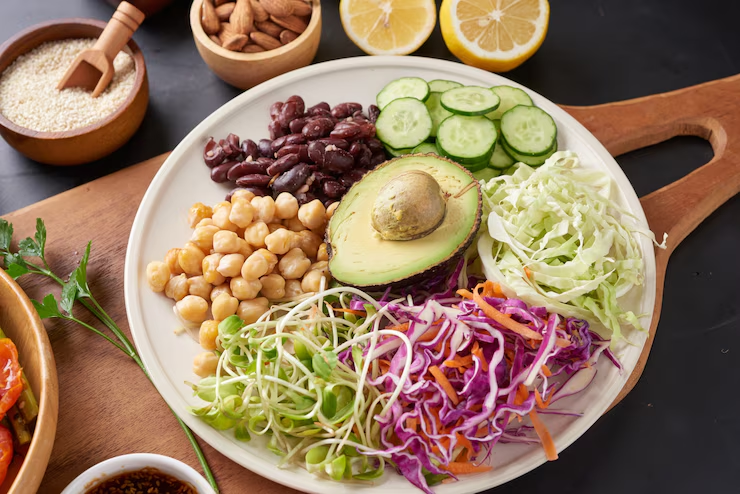
If your goal is to maintain your current body weight while improving strength or endurance, balance is key. You don’t need a calorie surplus or deficit—just enough to fuel your workouts and support recovery without gaining or losing weight.
A healthy diet for gym-goers in this phase should include a steady intake of protein, complex carbohydrates, and healthy fats. This helps maintain muscle mass, boost performance, and keep energy levels stable. Eating balanced meals throughout the day ensures your body gets the nutrients it needs to build strength, increase stamina, and stay in top condition without unwanted weight changes.
Calorie Target: Maintenance level
Macros:
Balanced approach: 30–40% carbs, 25–30% protein, 25–30% fats
Best Foods:
All whole foods, focusing on variety
Meal prep to stay consistent
Tips:
Rotate proteins and vegetables to prevent boredom.
Allow occasional treats to support adherence.
Hydration: The Forgotten Nutrient
Even mild dehydration can have a big impact on your workout performance. It may cause fatigue, reduce focus, and make it harder to complete exercises with proper form. Over time, it can also slow down muscle recovery and affect your training results.
For anyone following a healthy diet for gym-goers, staying hydrated is just as important as eating the right foods. Water helps regulate body temperature, transport nutrients, and remove waste. Make it a habit to drink water before, during, and after workouts to support energy levels, endurance, and overall progress in your fitness routine.
Goal: 3–4 liters per day (more if sweating heavily)
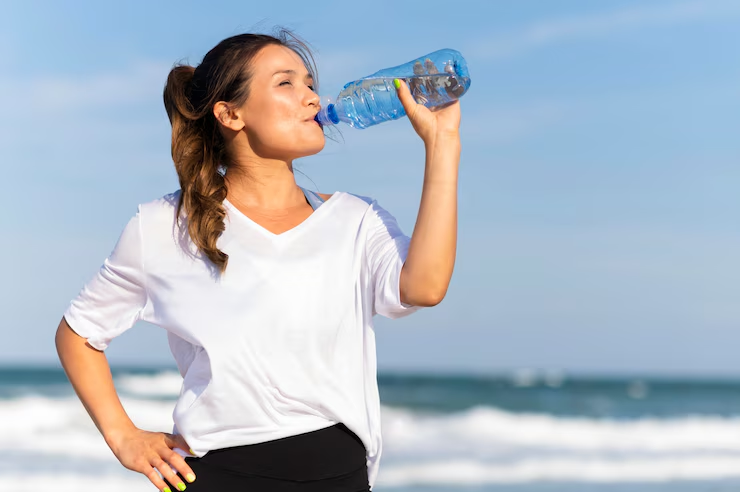
Tips:
Drink a glass of water upon waking
Add electrolytes after intense workouts
Coconut water is a natural alternative for replenishment
Sample 1-Day Meal Plan for Gym-Goers (Muscle Gain)
Breakfast: Start your day with a 4-egg omelet cooked with spinach and mushrooms, two slices of whole grain toast, and a cup of Greek yogurt topped with berries.
Snack: A whey protein shake blended with banana and peanut butter gives a quick energy and protein boost.
Lunch: Enjoy grilled chicken breast with 1.5 cups of brown rice, steamed broccoli, and a light olive oil drizzle for healthy fats.
Pre-Workout Meal: Fuel up with a bowl of oatmeal flavored with honey and cinnamon, along with two boiled eggs.
Post-Workout: Replenish energy and aid recovery with a whey protein shake and a ripe banana or some dextrose.
Dinner: A salmon fillet served with quinoa, grilled asparagus, and a mixed salad dressed with vinaigrette supports muscle recovery and overall health.
Evening Snack: Wrap up your day with cottage cheese mixed with flaxseed for slow-digesting protein overnight.
Conclusion
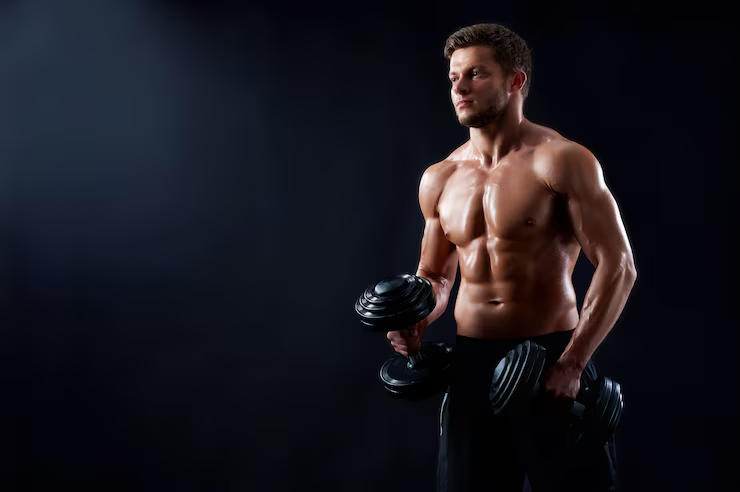
Including a healthy diet for gym-goers into your lifestyle is the key to unlocking your full potential in the gym. No matter how intense your training sessions are, without proper nutrition, your body will struggle to perform, recover, and grow effectively. A well-balanced diet rich in protein, complex carbohydrates, healthy fats, and essential micronutrients ensures that you have the energy to power through workouts and the nutrients to rebuild stronger muscles afterward.
Consistency in eating whole, nutrient-dense foods, staying hydrated, and timing your meals strategically around your workouts can make a noticeable difference in both your performance and physical transformation. Supplements can enhance your results, but they should complement—not replace—a nutritious foundation.
Ultimately, a healthy diet for gym-goers is not about restriction but about fueling your body with purpose. When combined with disciplined training, smart nutrition becomes the most powerful tool in your fitness journey.
FAQs
- What should I eat before a workout ?
A balanced pre-workout meal includes moderate carbs, lean protein, and a little fat—like oatmeal with protein or chicken and rice—eaten 60–90 minutes before exercise. - How important is protein for gym-goers ?
Protein is essential for muscle repair, recovery, and growth. Including protein in every meal helps maintain and build muscle mass. - Can I eat carbs if I’m trying to lose weight ?
Yes, carbs are important for energy. Choose complex carbs like brown rice, oats, or fruits in moderate portions as part of a calorie-controlled plan. - How many meals should I eat per day ?
Aim for 3–5 balanced meals spaced throughout the day with protein in each to support energy and muscle health. - Is hydration really that important ?
Yes, even mild dehydration can reduce focus, energy, and recovery. Drink water regularly, especially around workouts.
